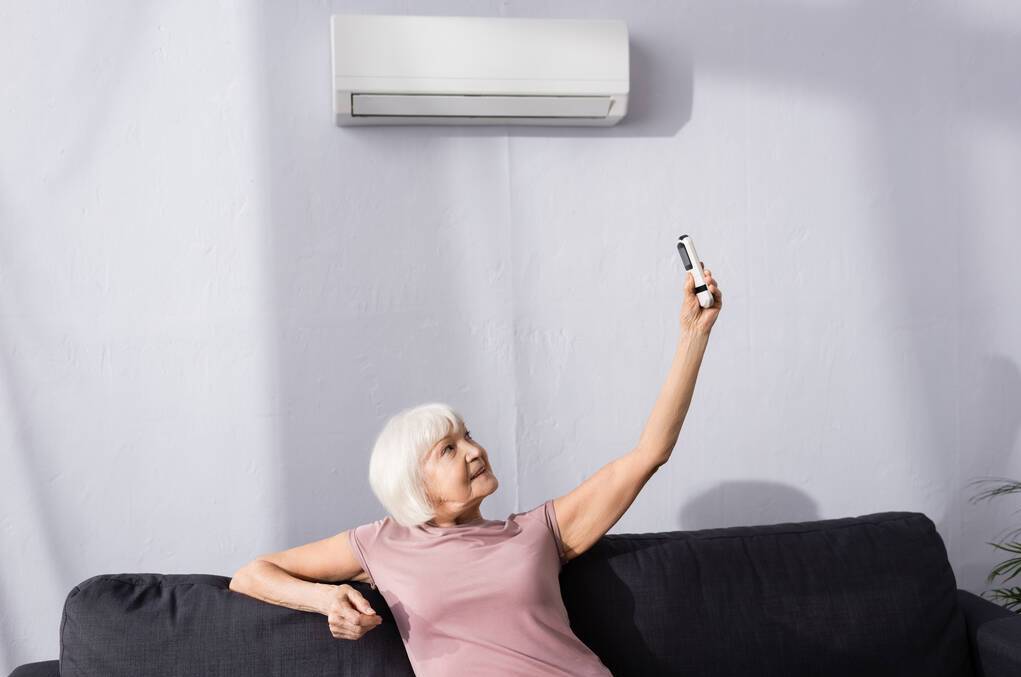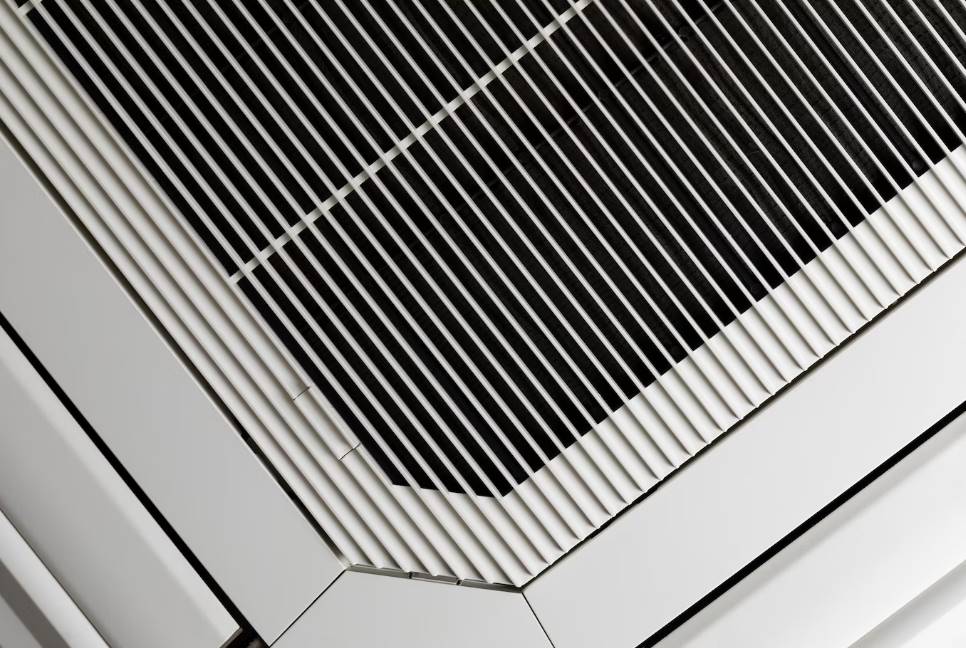A well-maintained HVAC system will serve you for many years to come. However, the expected lifespan of your air conditioner can significantly drop if you neglect to do routine maintenance. Your air conditioner will only last briefly and must be replaced before its time.
Air conditioners have a lifespan of about 10–15 years, whereas heating, ventilation, and air conditioning (HVAC) systems can last up to 30 years. Naturally, the cost of a replacement will be significant. Therefore, it is best to maintain your unit and use it to its full potential.
Unmaintained air conditioners lose efficiency over time. As a result, your monthly utility costs will steadily rise. Additionally, you should pay more for unexpected repairs as your system ages.
While your HVAC system will undoubtedly serve you well for many years, advancements in the field are constantly being made. When you decide to upgrade, the most up-to-date HVAC units will invariably be more efficient and feature-rich than your current model.
Keep reading to learn how to make your air conditioner last longer than usual!
HVAC: Knowing When to Replace vs. Repair
All households face the question of whether or not to replace their HVAC system at some point. There are a few details to remember.
Repair expenses. How much money have you spent over the years on HVAC repairs? Multiply that number by the age of your unit. A replacement should be considered if the sum is more than $5,000.
A/C and heating system age. Inefficient and potentially dangerous systems are over ten years old and require frequent repairs. The typical HVAC system has a life expectancy of 10–20 years.
For example, furnaces typically last between 15 and 20 years, so it's important to think about how old your system is. Upgrade your HVAC system to save money on utilities and use cutting-edge technology.
Extending the Life of Your Air Conditioning, Heating, and Ventilation System
Make Sure Your Air Conditioner Is Installed Right!
While the lifespan of your air conditioner may not be on your mind during setup, it can have a major impact on how long it lasts. It would help if you found a reliable contractor to do the work.
Professional air conditioner installation may cost extra, but you can trust it. Because of this, the likelihood of damage to your HVAC system is reduced, extending its useful life.
The Importance Of Routine Maintenance
Like any other mechanical system, regular HVAC maintenance is the best defence against a catastrophic and expensive breakdown. While HVAC systems do not require extensive upkeep, regular maintenance is still essential.
It would help to get your HVAC system checked, cleaned, and tuned up yearly. When you plan maintenance for your air conditioner in the spring and your furnace in the late summer or early fall, your systems will run at peak efficiency from when you turn them on. You have time to fix major issues before transferring to a new system.
If you haven't already, now is the time to schedule maintenance with your HVAC professional, ideally before the summer season begins, so that any problems may be fixed as soon as possible.
A comprehensive examination of the outside unit for dirt and damage and a complete cleaning of the indoor mechanisms and condensate pan are all part of an air conditioner tune-up.
You can avoid an AC breakdown by following these procedures. Air conditioners last longer with routine maintenance.
Maintain Clean Filters
Changing the air filters in your HVAC system regularly is one of the simplest and most efficient ways to extend its useful life. Clogged filters force your system to work harder, shortening its lifespan.
Find A Comfortable Temperature Balance
Do you find yourself continuously adjusting the thermostat between two extremes? Instead of forcing your heating and cooling system to work harder than it should, experiment with different temperatures until you discover one that works best for you.
Have A Programmable Thermostat Installed.
If you have a programmable thermostat, you may make your HVAC system's life much easier. You can programme custom temperature regimens to ease the load on your HVAC system while away from the house.
The "auto" setting is standard on most modern air conditioners. In this mode, the air conditioner's fan speed is controlled by the thermostat and only used when necessary rather than always. A fan set to "high" will continue to spin at full speed even if the intended temperature has been achieved. As a result, the fan and air conditioner may be used excessively, putting needless wear and tear on the equipment and driving up the cost of operation.
A high-speed fan will also get dirty and dusty more quickly than an automatic fan. Lower efficiency can result from a lack of maintenance and filter cleanings. Modern air conditioners have clever electronics that make it simple to regulate fan speeds as needed. Your air conditioner will last longer with the help of these devices because the load will be reduced.
Make Sure Your House Is Well Insulated
A well-insulated home is more comfortable to live in and easier on the HVAC system. Proper insulation can significantly reduce energy costs by retaining the heated or cooled air.
Insulation is crucial to the effectiveness of the air conditioner. When you have your home properly insulated, the conditioned air from your air conditioner won't be able to escape. This is why inspecting the insulation and seeing whether it needs to be replaced or updated while performing maintenance is important.
Conditioned air will escape if the insulation is subpar. As a result, your air conditioner would have to turn on and off, exhausting itself constantly. The engine and the compressor in your air conditioner take more stress due to this. As a result, the cost to repair your air conditioner will rise, and its lifespan will shorten.
Take Care Of Your Outside Appliances
The outside unit, a condenser, is the heart of any central air conditioning system. Stones and other debris might get lodged within the device during stormy seasons. This debris can obstruct the fan and cause pipe damage or leaks if allowed to accumulate during operation. After a storm, especially before the air conditioning season begins, it is wise to inspect the unit for any obvious damage visually.
Also, ensure no bushes or weeds are growing around the condenser. Blocking the exit vents prevents the unit from expelling the hot air, which is necessary for the system to function.
Keep an eye out for water or refrigerant leaking from the exterior unit. Such liquids may indicate a more significant problem within the apparatus.
Because it is located outside, the outdoor unit is generally remembered. This can reduce the air conditioner's efficiency and shorten its lifespan.
If you're looking for simple and secure solutions to conceal your outside air conditioner, this article covers you. You can use these to protect your outdoor unit from dirt and debris.
Stop The Leaks In Your Vents!
Registers, Air ducts, and grilles are just a few parts of a forced-air system that are often cleaned during a duct cleaning. You can have a functional HVAC system or good interior air quality with ducts. Indoor air quality, HVAC system performance, and system lifetime can all benefit from regular duct cleaning, which is recommended every five years.
Don't Overwork Your Air Conditioning And Heating System
Don't put unnecessary strain on your air conditioning or heating equipment. To save money on utility bills, turn the temperature down while you're out of the house or asleep.
However, air conditioning is not the only option for maintaining a comfortable indoor temperature in the summer. Combining your air conditioner with other equipment, such as ceiling fans, can help you save money. You can use a lower power level on your air conditioner if you use it in conjunction with a ceiling fan to improve air circulation. This lessens the strain on your air conditioner, prolongs its life, and saves you money on utility costs.
Reducing the need for air conditioning can also be accomplished using reflective window films, heat-blocking curtains, and other appliances like smart blinds. These steps improve your AC's cooling efficiency, lower your monthly energy bills, and prolong the life of your unit.
The Value of Expert Inspecting
A competent HVAC expert performing routine maintenance checks can help spot problems before they become serious and keep your system operating at peak efficiency. It's the HVAC equivalent of a yearly physical!
How to Extend the Life of Your Heating and Air Conditioning System
Maintenance of your HVAC system need not be a major inconvenience. Following these guidelines will help you get the most out of your HVAC system and keep your home at a pleasant temperature all year. Remember that a well-maintained HVAC system can help you save money and the planet.
If you follow these tips and take care of your HVAC system, it will continue functioning efficiently for many years. Please don't wait for your HVAC system to fail before taking care of it; preventative maintenance is key.
How Can I Tell If There Is A Leak In My Ductwork?
A professional duct leakage test can be performed, or you can observe room temperature differences.
Is A Programmable Thermostat Something You Should Consider Buying?
A programmable thermostat can reduce energy bills and keep your HVAC unit running well for years.
How Often Should I Replace The Air Filters In My Home's HVAC System?
Maintaining your air conditioner always includes cleaning or replacing the air filter. Familiarising yourself with this simple process and performing it independently is always recommended. Depending on the filter type and the working conditions, the average lifespan of a filter might be anywhere from two weeks to three months.
You can kill your air conditioner with a dirty filter. This causes your AC to work more, ultimately shortening its lifespan. An advanced thermostat or air conditioner controller can track how often you use it and send you a message when the filter needs to be changed.
There are a variety of cleaning methods available. Common methods include using an air can to blow the filter out or a vacuum to remove dust and debris. A soapy water solution can also be used to clean most filters. After a full rinsing and drying, the filter is reused.
Conclusion
If you don't keep up with routine maintenance on your HVAC system, it may not last as long as it would if you did. The average lifespan of an air conditioner is 10–15 years, whereas HVAC systems can last up to 30 years. Without regular servicing, air conditioners lose efficiency and cost more to run each month.
Finding a trustworthy professional to do a proper installation of your HVAC system is crucial if you want to keep using it for a long time. The most effective systems can benefit from annual maintenance to keep them operating at optimal performance and prevent catastrophic failure. If you want to get ahead of any potential issues this summer, it's best to have your HVAC system checked out before the heat of the season sets in.
Keeping the filters clean is another approach to lengthen the system's lifespan. Filter clogging makes the system work harder and reduces its useful life. To prolong the life of the system, try out various temperature settings and use a programmable thermostat. Electronics in today's air conditioners make it simple to adjust the speed of the fan as needed, decreasing the strain on the unit and extending its useful life.
A well-insulated house is more pleasant to live in and uses less energy since warm or chilly air is kept inside for longer. In order to keep the conditioned air inside where it belongs, insulation is essential. The effectiveness and longevity of the unit depend on regular maintenance.
It's also crucial to keep the outdoor appliances, such the condenser, in good working order. Exhaust vents can be damaged by debris, rendering the air conditioner inoperable. Every five years, you should have your ducts cleaned to maintain optimal performance and air quality.
Turn down the thermostat and use other cooling methods, such as ceiling fans, to save energy use and costs during the hot months. The use of air conditioning can be minimised with the use of heat-blocking drapes, reflecting window films, and automated blinds.
In order to prevent costly breakdowns and maintain maximum efficiency, regular inspection by a trained professional is required. If you perform these steps before the HVAC system fails, you can extend its useful life.
You can check for duct leaks by conducting duct leakage tests or by noting temperature variations across rooms. If you want to save money on your energy bill and prolong the life of your HVAC system, investing in a programmable thermostat is a good idea. Air filters should be cleaned or replaced at least once every two to three months on average.
Content Summary
- The efficiency and effectiveness of your HVAC system will suffer without regular maintenance.
- HVAC systems can last up to 30 years whereas air conditioners only last about a decade.
- Avoiding costly repairs requires regular maintenance.
- Newer HVAC systems have advanced in efficiency and convenience.
- When considering whether to replace or repair your HVAC system, you should take its age and the cost of repairs into account.
- The system's lifespan can be increased and damage avoided with expert installation.
- Preventing expensive malfunctions in your HVAC system requires regular maintenance.
- You should have your HVAC system and heating system serviced annually.
- Cleaning, adjusting, and inspecting for problems are all part of regular maintenance.
- Maintaining the system by regularly replacing the air filters is essential.
- Finding a thermal sweet spot relieves stress on the system.
- Air conditioning and heating systems benefit from programmable thermostats.
- The thermostat's "auto" setting is the most efficient and wear-free option.
- A well insulated home uses less energy and is easier on the HVAC system to maintain.
- Poor insulation results in the loss of conditioned air, an increase in stress, and a rise in expenses.
- The external condenser should be kept clean and clear of debris.
- Check the outdoor condenser for cracks, leaks, and obstructed airflow.
- Vents that leak air can reduce comfort and efficiency.
- Reduce the stress on your air conditioner by using supplementary tools, such as ceiling fans.
- Curtains and reflective window film help keep the cool air inside.
- If you want better air quality and longer life from your HVAC system, clean your ducts every five years.
- Get in touch with a qualified HVAC professional to do regular maintenance checks.
- Maintaining your HVAC system can help you save green and cash.
- Don't wait for something to break; instead, focus on upkeep to avoid problems.
- Use a professional test or temperature changes to locate air leaks in your ducting.
- In addition to saving money, a programmable thermostat also helps HVAC systems last longer.
- Maintaining clean or new air filters on a regular basis will ease the load on your system.
- Air filters have a limited lifespan, often between two and three months before they need to be replaced.
- The effectiveness of your air conditioner may decrease if the filter is unclean.
- A smart thermostat can alert you when it's time to swap out the filter.
- Filters may be cleaned efficiently using a number of methods, including air cans and soapy water.
- Filters should be washed and dried completely before being reused.
Frequently Asked Questions About HVAC Systems
The lifespan of an HVAC system can vary, but regular maintenance can help extend it significantly. On average, air conditioners last 10-15 years, while HVAC systems can last up to 30 years.
Common signs include reduced cooling or heating efficiency, unusual noises, uneven temperature distribution, and increased energy bills. If you notice any of these issues, scheduling maintenance's a good idea.
The frequency of air filter changes depends on factors like the filter type and usage conditions. Typically, filters should be replaced every 2-3 months, but it's advisable to check them regularly and replace them when they appear dirty or clogged.
While some maintenance tasks, like changing air filters, can be done by homeowners, having a professional HVAC technician perform comprehensive maintenance annually is highly recommended. They can identify and address potential issues that may go unnoticed by homeowners.
Several cost-effective measures include installing a programmable thermostat to optimise temperature control, ensuring proper insulation to minimise conditioned air loss, and using ceiling fans or other supplementary cooling methods to reduce the workload on your air conditioner. Regular cleaning and maintenance of indoor and outdoor components can also help extend your system's lifespan.



